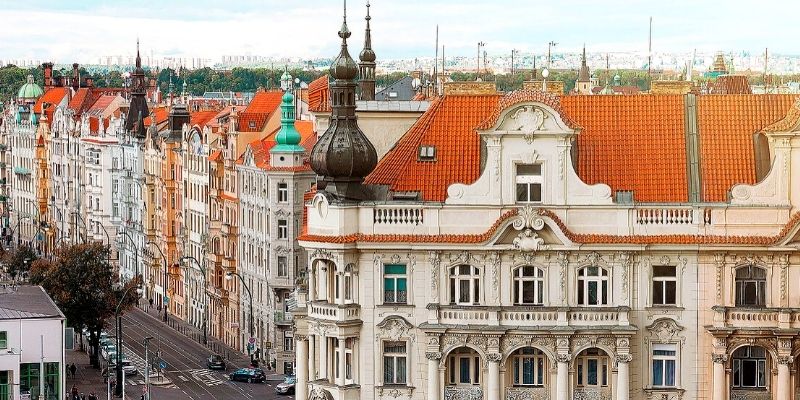In Europe, the road to obtaining an apartment is the most difficult in the Czech Republic. It was difficult before the pandemic, and it would seem to be even more difficult now. Prices of apartments and houses in Prague and other larger cities are soaring.
According to the Property Index study of the Deloitte consulting company, Czechs need to work 11.4 years for an average salary to purchase their own apartment with an area of 70 square meters.
Germans will reach comparable housing in 5.1 years, Poles in 7.7 and Hungarians in 7.6 years. The situation in Prague is even more acute.
In the unavailability of housing, neighboring Austria is getting close to the Czech capital, where ten annual average salaries are needed to purchase an apartment, and Slovakia, where it is 9.9 salaries.
The latest data on apartment prices are from the third quarter of last year. Prices continued to rise sharply despite the coronavirus pandemic. The price of houses and apartments rose by 4.9 percent in a year.
The average price of a square meter apartment is CZK 70,300. The apartment with an area of 70 square meters will cost almost CZK 5 million.
With rising inflation, it is increasingly likely that the Czech National Bank will raise interest rates, making mortgages more expensive, which has left people wanting to buy houses and apartments while they are still low.
Czechs have long been one of the countries where a large part of the population lives in their own apartments and long for them. At the same time, compared to other countries, there are not enough apartments and little construction. All this together is the perfect constellation for soaring property prices and the least affordable housing in Europe.
There are 460 apartments per thousand inhabitants in the Czech Republic. This is below the European average. In neighboring Germany, it is 511.8apartments, in Austria 541, and in Italy 581. Portugal has the most apartments and houses per thousand inhabitants at 582.
The relationship between the number of apartments and their availability is visible at first glance. Therefore, real estate prices in the Czech Republic are growing at an above-average rate by European standards.
The poorer the country, the more people own an apartment
The European comparison also clearly shows how insufficient the construction in the Czech Republic is. Last year, an average of 3.62 apartments per thousand inhabitants began to be built.
In Poland, where housing is significantly more affordable, it was 6.18 apartments, and in France 6.12. The good news is that construction is accelerating at least a little.
The numbers of people living in their own houses and apartments vary considerably across Europe. The poorer the country, the more people live in their houses and apartments.
In general, the rich west and north of Europe have far more people renting apartments than the poorer east and south of the continent. In the European Union, 69.7 percent of people live in their own apartments and houses on average, with the most in poor Romania, where it is 95.8 percent. It is followed by Hungary with 91.7 percent and Slovakia with 90.9 percent.
On the opposite end, there are the richest countries in Western Europe. In Switzerland, only 41.6 percent of people live in their own house or apartment, 51.1 percent in Germany, 55.2 percent in Austria, and 60.8 percent in Denmark.
The richer the country, the fewer owners.







